#Music Journalism
Text
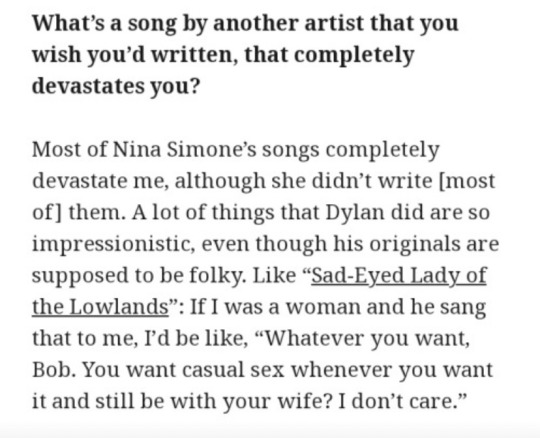
jeff buckley in an interview about bob dylan writing for nina simone. bob dylan’s wrote sad-eyed lady about sara.
#nina simone#indie rock#jeff buckley#music#journaling#love letters#musician#trendingtopics#lover you should've come over#naturecore#bob dylan#rock music#daisy jones and the six#heath ledger#rock n roll#music journalism#peaceful army#lilac wine#interview#witchcraft#aesthetic#artisits on tumblr#artists#pinterest#december#lgtbtq#romantic academia#illustration#cottagecore#eras tour
3K notes
·
View notes
Text
"It’s not just the larger American audience that misinterprets the meaning of Juneteenth. Across the diaspora the message gets distorted, reflected in how most Juneteenth event flyers often have the colors of the Pan-African movement instead of Juneteenth’s actual colors. The official Juneteenth colors are red, white, and blue. The presence of the patriotic colors symbolizes the American flag, serving as a poignant reminder that slaves and their descendants were, and continue to be, an integral part of the United States."
- Shelby Stewart in "As Juneteenth Becomes Co-Opted, Don't Forget Its Texas Roots" for Okayplayer
#juneteenth#texas#black history#american history#public policy#federal holiday#black culture#american culture#history#journalism#politics#usa#music journalism
155 notes
·
View notes
Text
A series of 1971 music magazines from around the world featuring Led Zeppelin

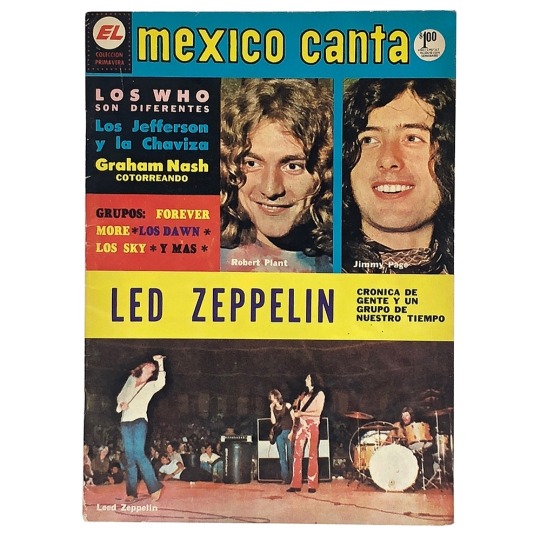


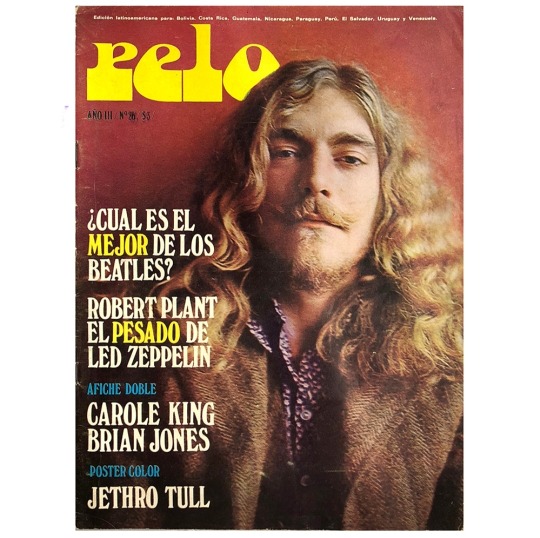


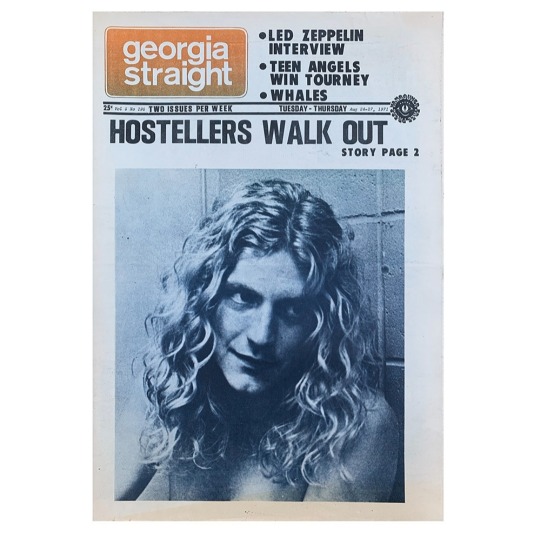
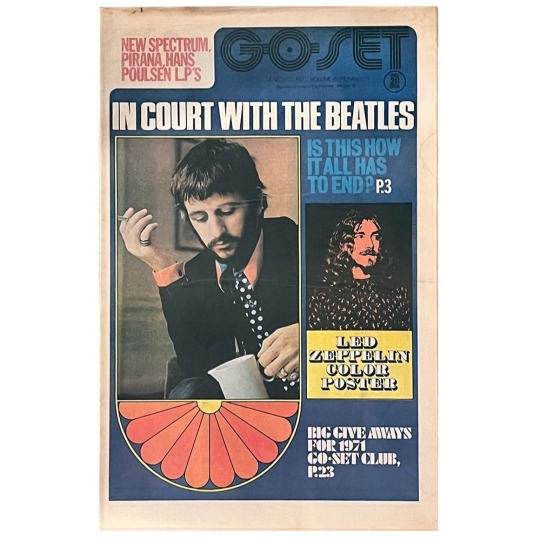
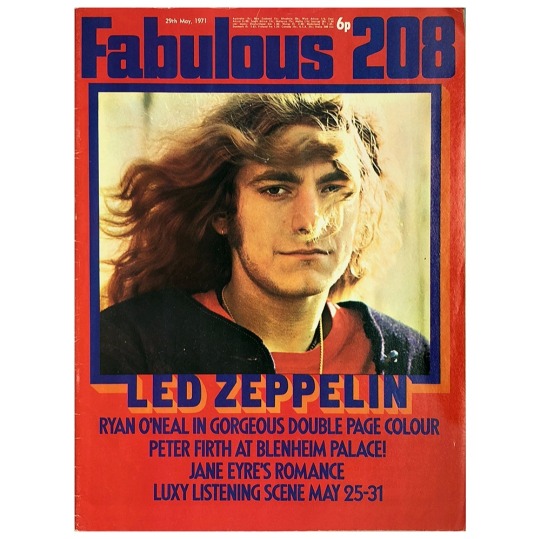
#led zeppelin#1971#70s#vintage#robert plant#jimmy page#john paul jones#john bohnam#classic rock#hard rock#classic rock fandom#music journalism#music magazine#by dee dee 🌺🕯️#rare zeppelin
156 notes
·
View notes
Text


A (Weird) Look Into Drumless Albums: Daft Punk & DJ Sabrina The Teenage DJ
2023: In celebration of the 10th anniversary since the release of Daft Punk's 2013 'Random Access Memories', the duo (or whoever manages them now they've broken up) emerged with - alongside an anniversary edition - perhaps one of the strangest release decisions in dance music... ever? : an entirely drumless version of their beloved album, nary a kick nor snare in sight.
now, I should mention that RAM is not my favourite daft punk album, but credit where credit is due, you can't deny get lucky and lose yourself to dance.
nonetheless this version of the album spans between the actually quite alright (in the case of The Game of Love); something frustratingly lacking - Giorgio by Moroder without drums totally misses the mark and is... 9 minutes long; and the secret third thing in lose yourself to dance that is sorta what this semi-structured ramble is about:
Lose Yourself To Dance (Drumless Edition) is... agonising...ly.. good??? - like... alarmingly so
one thing daft punk had always excelled at (in my eyes) is creating a sound that makes you BEG for some musical satisfaction - Crescendolls on discovery is the clearest example - and playing that for the entire song.
What Lose Yourself gains without drums is this overwhelming internal feeling that at any point the drums are going to finally kick in and give that satisfaction that the track is building up to. Im being serious, go listen to it, its 6 minutes of the tensest build up with absolutely zero release, its brilliant - I haven't seen anything else quite like it and I strangely love it. It totally peels back the idea of what dance music needs and is still so excellently danceable in its own way.
So, the reason I bring this up is because DJ Sabrina The Teenage DJ's 'Destiny (Drumless Edition)' does this for almost all of its entire, majestic 3 hours and 56 minute runtime. And of course this album was probably just a joke about Daft Punk's release, and a continued meme about how the artist dropped a 4 hour album fairly casually - but like Lose Yourself To Dance, its really surprisingly quite good.
now, before you rush into it (I know you're TOTALLY BEGGING to, and have already put aside 4 precious hours to dedicate to the album.) I feel that the feeling im talking about here only makes sense when you know a bit of DJ Sabrina's other stuff: its (usually) some absolutely excellent sampling work with a massive side chained 4 on the floor that slides in halfway through. It's simple, but executed brilliantly. Check out all 7 minutes of 'Next To Me', and you'll get the vibe.
I'm not saying this version is better than the original... absolutely not, and same goes for Lose Yourself To Dance. But there really is something here when it stretches out for 4 hours. I think I may be one of the very few people who have actually sat through a large chunk of the album, but that feeling of anticipation turns from unease into a trancelike... calm?
Destiny Drumless is... like... incredible study music, especially with Sabrina's heavily layered style, the samples begin to wash over you without any pause (the album has basically zero dead air), and it becomes wonderfully tranquil to just... sit... and absorb what you can of the glossy synths and gentle pads as they pass you by.
While RAM Drumless is, really not great save for a few tracks and DJ Sabrina is fairly underground... I do sincerely hope that the joke about it catches on, because drumless dance is... utterly bizarre, but can really very much work with the right artist, and that weird feeling you get while listening is something im not sure exists anywhere else in music right now.
7 notes
·
View notes
Text
What's the musical version of Star Wars? Muse are getting there. Who else is mad enough to try?
Q Magazine on Muse's Drones tour, April 2016
#see this is why I love longform written/print journalism#if you send a journalist out there for a few days to be with a band with the **expectation** that they'll have to fill 7 pages on it#they will really go in depth and come out with things that so capture the essence!#It's less soundbite and more understanding music. I miss Q (the new 'blog' doesn't count)#music journalism#muse band#muse#matt bellamy#the muse live experience is something else#muse live#Q Magazine#Drones tour#Drones era#2016#music#musicians#live music#bands#music magazines#music mags#star wars#who else is mad enough to try?#truly
8 notes
·
View notes
Text

On July 19th, 1975, Elvis played two shows at the Nassau Veterans Coliseum, Uniondale, NY, to a combined audience of 33 000. The matinee show was reviewed by a specialist music and arts writer, John Rockwell, in the New York Times. As a result, the review was more thoughtfully compiled than many others during this period. Despite one or two barbs about Elvis’ weight and a little sneering about his career background, you get the impression that, in spite of his perhaps more elevated tastes, John Rockwell actually enjoyed the show, the spectacle, and Elvis himself.
“…Elvis Presley played Madison Square Garden in 1972 for the first and last time. Since then, he has stuck to the suburbs, like most middle-of-the-roaders. Except that, when he wants to, Mr. Presley can still rock, and he felt like rocking a refreshing lot of the time Saturday at the Nassau Coliseum in Uniondale…Fat or thin, overpowering or futile, he still inspires and accepts the adoration of his fans with the good-humoured grace of a king. Mr. Presley's fans may not number all the country these days; his records are no longer guaranteed the top spot on the charts, but his concerts still sell out sports arenas months in advance, and his Coliseum audience consisted evenly of people from small children to grandmothers. They were polite and neatly dressed; decorum prevailed before the star's appearance and well-mannered ecstasy when he was onstage. His following probably includes a broader sweep of white Americans that of any other pop performer…
…The youthful sexuality has long since gone; it couldn't really be otherwise. But in its place there is a wonderfully relaxed, ironic affection that can be almost as nice. His baritone is still as solid as ever, with its humorously cavernous bottom and its nasal vibrato on top. When he is putting out as he did Saturday afternoon, reaching for the top notes and shaping phrases with the same easy individuality that has always marked his best work, he is still the king…”
The 'chicken-bone' stage jumpsuit even got an honourable mention of its own;
“…Saturday afternoon's costume had been laboriously conceived to disguise and distract attention from his size, and its most striking aspect was its sheer lavishness; basically black, bell bottom pants and a vest over a puffy, double sleeve shirt, but extravagantly overlaid with "jewels" (presumably rhinestones) arranged in baroque exaggeration of American Indian designs. It looked wonderful…"
Fortunately for us, the show was captured in an audience recording of reasonable quality, and bootlegged. It's a great, intense, polished and high energy show which would have made a cracking live album.
youtube
#elvis history#elvis presley#elvis in the 70s#rock history#elvis fans#live music#elvis 1970s#musicians#elvis#elvis aaron presley#bootleg#elvis on stage#new york times#music journalism#john rockwell#Youtube
53 notes
·
View notes
Text

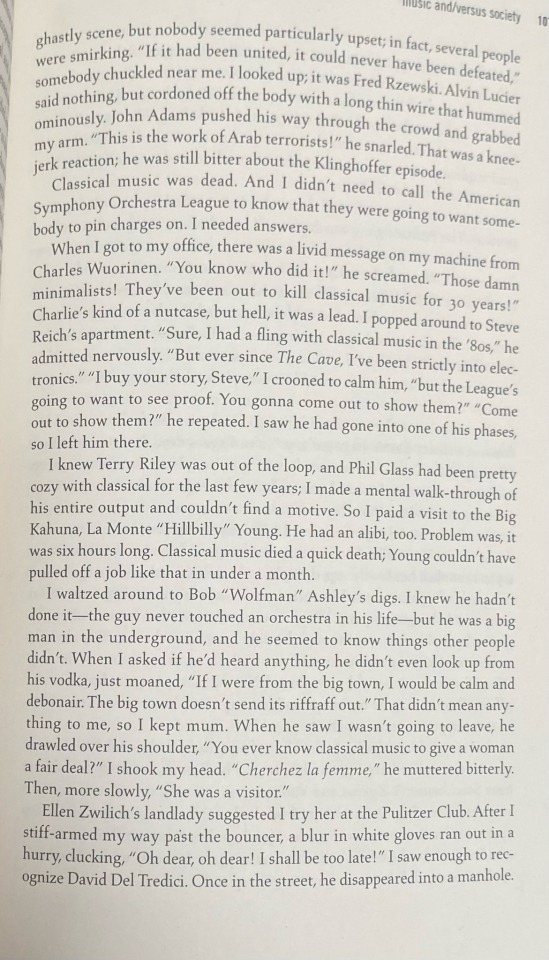
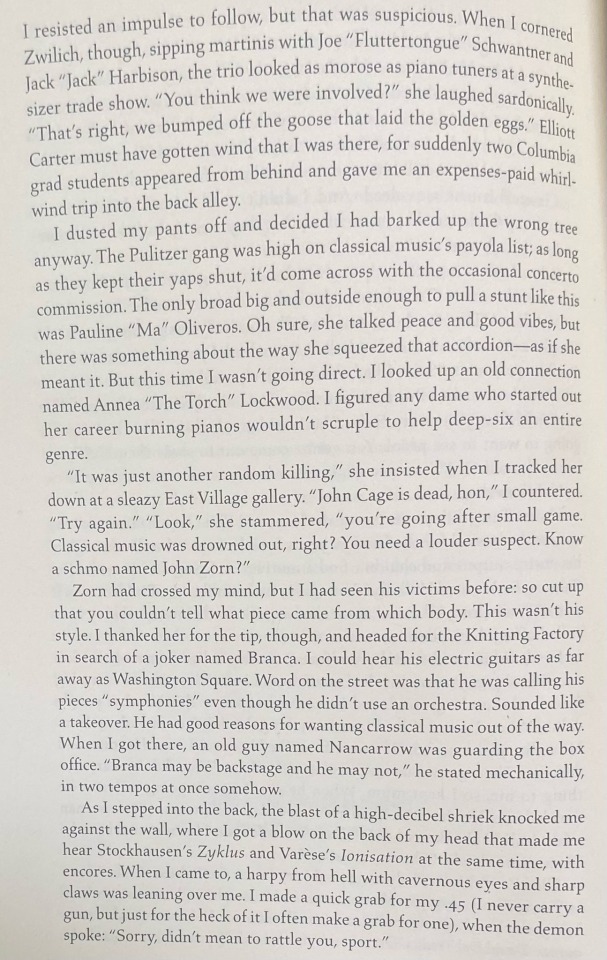

Kyle Gann, Music Downtown: Who Killed Classical Music?
34 notes
·
View notes
Text
Speak Now
The album for every teen in their 20’s, everyone coming of age in their 30’s. This album brings back memories of teenage heartache and the romanticism of young new love. The soundtrack to our youth somehow made new and shiny. Speak Now (Taylor’s Version) was so highly anticipated it hardly needed any marketing or advertisement and this re-record is closest to the original we’ve heard so far. The twisty wordy almost rant-like lyricism still bringing that wonderstruck feeling 13 years later with new whimsy and stronger vocals that still leave you wanting more.
After 13 years it’s no surprise Taylor’s voice has matured in a definite way which you can hear in tracks such as Dear John. Being the 5th track you know it’s going to be the most emotional, such as opening a wound that was never fully healed. Re-recording it must have been like having flashbacks of being drafted at 19 into a war you never really asked to be apart of. Lying about your age to be recruited, too little too late to realize the regret this would leave you in because you were so young. If clarity's in death, then why won't this die? Would be all I could think of if I was in her place.
The opposite side of Dear John is Timeless, a vault song that truly fits into the Speak Now essence. A recurring theme throughout the album is how time can be healing or romantic the way a young couple romanticizes about the life they’ll build together and keep the memories in a cardboard box. Taylor also writes about how time can be paralyzing and stagnant, how the world feels unmoving when you’re heartbroken and nothing can heal you. Time seems to be a ongoing theme throughout Taylor’s writing. Even at 19 Taylor was capable of writing songs with depth and powerful storytelling. Timeless has to be one of the best closing songs on an album that Taylor has written.
The album has proven to be what we all hope for time and time again, one track after another. It's probably my personal favorite of the re-records so far. This album holds masterful Poetry and hits all the right emotional nostalgia. I can't wait for another re-record!
#taylor swift#speak now tv#speak now#the eras tour#taylors version#taylornation#swifties#ts the eras tour#music review#album review#super short album review#first I've ever written#be nice#writing#music#journalism#musician#new music#pop music#music journalism
25 notes
·
View notes
Text


Dominic Fike - Eventim Apollo - 23/09/2023
After raving about his music on Blonde Vibrations and being blown away by his set at Coachella 2023, this was one concert that we could not wait to attend. Dominic Fike's road to finally performing in the United Kingdom was definitely something to count down the days to.
Clearly, we were not alone in this excitement. Fans had seemingly been queuing since the early hours for this show which is just a testament to how dedicated his audience is. This is something I noticed throughout the show, as the noise levels from the audience during the first song of the set, 'How Much Is Weed?', were just booming. I could barely hear Fike himself during the earlier points of the set.
To sum up the evening, it exceeded our already high expectations. From the lighthearted anecdotes joking at legal reasons for being unable to enter the country before this tour, to the switch up between studio versions and live renditions of songs, Fike kept his audience on their toes. Something I really enjoyed was the variation in his performance styles, as it provided an experience more interesting than a usual sing-a-long. 'Why' is a great example of this.
Something we have discussed on Blonde Vibrations before is having the desire to hear a good portion of one's new record during an artist's tour and this is exactly what Fike provided. The set list included both hits and (in my opinion) underrated tracks from his recent studio album 'Sunburn', which the fans had already memorised. He also sprinkled in classic songs such as 'Politics & Violence' and 'Come Here' from older projects which still brought about the same excitement from the audience.
Overall, this show was full of charisma and will definitely hold a place as one of my favourite shows of the year (and there is some tough competition). My only regret is not purchasing tickets for London Night Two, which featured a surprise performance from Bakar...
#dominic fike#concert#performance#review#concert review#podcast#podcasters#influencers#spotify#apple podcast#london#journalism#music journalism#fike
16 notes
·
View notes
Video
youtube
New Goth Music Releases! Summer & Fall 2022
Click here to subscribe on YouTube!
#goth#goth music#goth subculture#goth scene#goth girl#goth dj#music journalist#music journalism#cadaverkelly#cadaver kelly#new music#new music releases#goth rock#gothic rock#postpunk#post punk#post-punk#deathrock#death rock#darkwave#dark wave#industrial#electronic#shoegaze#synthpop#synth pop
46 notes
·
View notes
Text
What's behind the collapse of music journalism? In brief - almost anything corporate capitalism touches it wrecks.
A more detailed view:
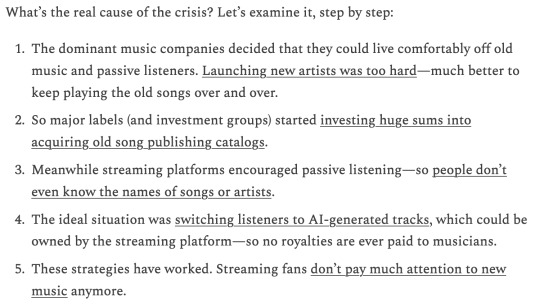
"The irony is that exciting new music is still getting released—but almost nobody hears it. The system actively works to hide it."
3 notes
·
View notes
Text
Review: The Game
★★★★☆ - 4 stars
"Don't give up on the way, if you get pushed down."

The second track of model and pop singer Meredith O'Connor's 2015 album I Am, highlights her stance as an anti-bullying activist. A letter to her past self, encouraging the younger version of her, as she tells the story of the schoolgirl difficulties she faced because of bullies.
Starting with gentle, acoustic guitar chords, the track is slower than others on the album, almost representative of how over time bullying increasingly impacts upon you. In tone, it's sorrowful throughout the verses as she questions herself and how she felt whilst being bullied. Yet, during the chorus, Meredith's vocals (reminiscent of early Dove Cameron but with an alternative twist) grow stronger and the mood begins to radiate positivity as she sings about dealing with hurtful situations and getting through each day.
It's an encouraging song with a beautiful message for anyone who has experienced or is currently experiencing bullying. It reminds us of the importance of not giving up despite the negative impacts it has on a person's self-esteem.
#meredith o'connor#music#music lovers#music review#music blog#pop music#teen musician#the game#I am#songs#track review#music recs#musicblr#music journalism#anti bullying#bullying#bullies#songs about bullying#review request
9 notes
·
View notes
Text

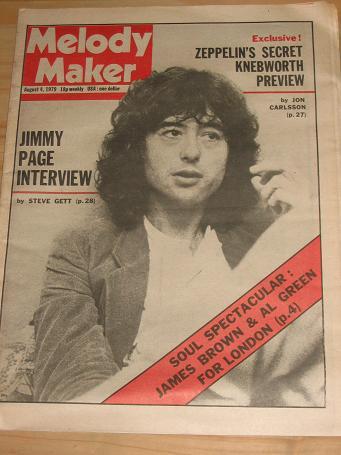
Melody Maker, August 4, 1979
#jimmy page#led zeppelin#70s#robert plant#john bonham#john paul jones#classic rock#rock#hard rock#pagey#classic rock fandom#melody maker#music journalism#by dee dee 🌺🕯️
40 notes
·
View notes
Text
Muse - Absolution (2003)
After years of waiting, loaded with trials and experimentation, apocalypse finally has a soundtrack. No, it’s not the angsty, heady crooning of yet another musician in love, it’s not the introspective Beatle having seen the Truth, it is not Johnny Rotten tearing down the Establishment (again), and it isn’t the self-destruction a James Hetfield would growl about.
Apocalypse as a genre has been claimed and made a natural home in, and by a seemingly unassuming young band hailing from the idyllic seaside Middle Of Nowhere, Teignmouth, Devonshire in England: alt-prog rockers Muse.
Muse’s 3rd studio album Absolution (released in 2003) picks up on the big sounds and potential the band had been showing throughout their second album and takes it twenty notches higher. The instrumentation is solid, the rhythms are tight, the guitars loud, the sound, bombastic in moments and delicate, vulnerable and beautiful in the next, the lyrical themes are exploratory, and the band themselves seem to find their feet and lay down the foundations of what even today makes up their signature ‘Musey’ sound.
Yet that little summary couldn’t begin to do justice to the grandiose and power this album packs. At it’s finest, Muse take you on a fifty-two minute trip out of the world (quite literally, as the titular track ‘Sing For Absolution’s music video features the band jetting off into outer space to escape the planet only to have their spaceship crash down into a burning, post-apocalyptical London), charming and haunting you with dark, sustained Rachmaninoff-esque piano breakdowns and blowing you away with larger-than-life drums, distorted guitar and bass working in perfect synch to build up a rising tide-wall of sound that may make it hard at times to remember that there are but three musicians in the recording rooms shaking up your world, as singer Matt Bellamy wails, sings and warbles on about facing death (‘Thoughts of a Dying Atheist’), running out of time (‘Time Is Running Out’), meeting up with the Devil himself (‘The Small Print’), and changing the world (‘Butterflies and Hurricanes’), amongst other things, with each song bearing as Muse-like a name as there comes.
And Matt Bellamy, contrasting this album with their previous efforts, said in an interview that Absolution “is more about us being personable, about us being normal people at home”.
Well, normal Matt Bellamy at home, that is.
The album is introduced with a stomping, twenty second intro, the sound of boots getting closer and heavier, culminating in a single phrase: “Siege heil… marsche!” Twenty seconds in, the apocalyptical themes have already begun kicking in.
But before you have the time to breathe, the first song of the album, ‘Apocalypse Please’ begins, coming right at you with all of Bellamy’s pensiveness and despair, heavy ‘apocalyptical’ piano chords and drums crashing down on you as Matt declares that Earth needs a miracle and that “this is the end of the world”, layering the chorus as multiple Bellamy’s seal humanity’s fate.
The song’s mid/low tempo (around 80bpm) and loud vocals—almost cries of despair, really—and the closing bars with amplified, sustained single bass notes under forceful piano run-up chords, work quite well in conjuring up quite the image the band is looking to build and set the scene for the rest of the album to come.
Following this is one of the singles off the album, ‘Time Is Running Out’, starting with a low, almost choking yet flowing bassline with Bellamy almost breathing out lines like ‘I think I’m drowning/Asphyxiated/I want to break this spell that you created’, a song that starts out soft, restrained, then building up to the chorus as a tormented Bellamy tries to break free and realises that their time is running out, again employing the signature Muse technique of layering multiple guitars and vocals to build up a wall of sound, amplifying Matt’s thoughts, as does its twin later on the album, ‘Hysteria’.
On the titular track, ‘Sing for Absolution’, Bellamy seems to find a Muse of his own, turning inwards to a much more relaxed tempo. The band makes effective use of bassist Chris Wolstenholme’s staccato bass, offset and complemented by the almost dreamlike delayed, echoing guitars and pianos, to cook up an image of a lonely, reflective singer up alone in a room on the top floor of a house, sitting in the faint blue gleam of starlight, gazing out the window into space, thinking about his own life (‘Tiptoe to your room/A starlight in the gloom/I only dream of you/And you never knew’).
On ‘Stockholm Syndrome’, Matthew Bellamy takes the tried and tested ‘captor-and-captive-fall-in-love’ narrative, a darling of writers and musicians everywhere, and breathes new life into it by adding a new dimension of emotions to it, playing on the presumed captor-narrator’s guilt, confusion and sense of hopelessness (‘And she’ll scream and she’ll shout, and she’ll pray/And she had a name’; ‘We’ll love and we’ll hate and we’ll die/All to no avail…’; ‘This is the last time I’ll forget you… I wish I could’)
Muse use drummer Dominic Howard’s drums; pounding, loud and noticeable as a heartbeat in a quiet room; and Bellamy’s trembling vibratos to effectively paint the brutality and vulnerability; indeed, in the last chorus, behind the brute forces crashing on the guitars, bass and drums, one can hear the almost fragile, delicate piano arpeggios in the background, swallowed up by the guitars, almost hidden, protected, in a story that extends beyond the words.
Muse’s ability to switch from a light-hearted, fast-paced tone to a brooding, dark, haunting wail with effortless ease and grace stands out throughout the album and particularly on the sixth track on the album, ‘Falling Away With You’. The song, almost a hidden gem tucked away snugly in the middle of the album, is one of the few times the man who would go on to sing about conspiracy theories, the second law of thermodynamics and uprisings, turns inward and reflects on the people in his life and his relationships with them.
The song’s opening is slightly similar to Blackbird by the Beatles, with a quiet, reverberating guitar over a near-silent backdrop as Bellamy sings about his fears of forgetting a loved one and how relationships change, slowly building up and letting his bandmates catch up in a sort of relay-race, to a chorus that bursts to life with a screaming Matt falsetto-ing to a climax as the band fades to make space for Bellamy to calm down again, and the cycle continues.
It would be fair to say that the bass line drives the next track off the album, ‘Hysteria’. The song opens with a booming bass riff and all the straight faced extravagance that is both the band’s signature and legacy. A three-way harmonic melody solo rages on in the upper octaves that run in the background of the last chorus as a tormented Matthew tries to break free of his inner demons and Muse bring the song to a close in a manner worthy of a stadium closure.
Of course, it wouldn’t be a Muse album without experimentation, and while Muse aren’t recording in zero gravity (for now), the band takes to string arrangements in search of new sounds and avenues on ‘Blackout’, dishing up a slow lament, complemented by fuzzy single note tremolos, and it only gets better on the next track, ‘Butterflies and Hurricanes’, as Bellamy sounds off a call to arms to get up and change the world, and “use this chance to be heard”. The strings create a dystopian air, with a terse, fuzzy bass running underground and Wolstenholme’s backing vocals playing in the open skies as Bellamy commands his summoned army to action. His emotions seem to spill out of his fingers onto the piano in sudden gushes in a beautiful, flying, sustained solo that stands even today as a testament to Bellamy’s superior skills on the keys.
Absolution marks a sonic departure from Origin of Symmetry (2001) in that the production seems a lot more refined and cleaner. The band favours richer, fuller sounds: more gain-heavy guitars and bigger drums that would feel home in arena, as opposed to the “dirtier”, more grungey, piercing sounds used on their previous endeavours.
However, there is tons for fans of the band to savour (in addition to a very musically accomplished record) on the track ‘The Small Print’. Bellamy returns to one of his pet themes as he takes on the role of the apathetic Devil (‘I’m a priest God never paid’), watching the world and its happenings with an omniscient eye (‘I hope you’ve seen the light/because no one really cares/They’re just pretending’), a nod back to Origin-era songs like ‘Hyper Music’. The band’s commendable execution, both with the lyrics as well as the rough, almost lo-fi edge in the production on this piece make it astonishingly powerful for a song with a niche theme and a simple guitar riff repeating over shifting root bass notes.
There really is never an uneventful moment on the fifty-two minute, thirteen-second record. The band throw familiarity to the winds on their next track, ‘Endlessly’, a song both very predictably Muse-like, yet something quite unlike anything the band had done before. Trading in the guitar for dampened, “muddy” synths, Muse give you the feeling of sitting underwater, drowned in the waterfalls of sound. Synth chords fall silently around you and ripple under the layers of arpeggiated synths that build up the wall of—excuse the pun—endless sound and lock you into Bellamy’s greyness as he promises a loved one the he’ll do anything for them but won’t leave them– until finally deciding that that moment never comes and calming down to a finish, internal turmoil now at rest.
Bellamy, mind wandering like a child, turns to more existential ideas soon after on ‘Thoughts Of A Dying Atheist’, a fast-paced, energetic and curiously happy-sounding piece, musically, for a song that is about an atheist at the end of their life, knowing that what lies ahead of them is nothingness (‘It scares the hell out of me/And the end is all I can see’) and seems to create an ironic contrast between the energy of the song and the narrator’s nervousness that works to the band’s credit.
Muse continue to shock and awe, haunt and bewitch you right up to the very last song on the album, ‘Ruled By Secrecy’. Lyrically perhaps the most quotidian song on the album, this track deals with the pressures in life and realising that you’ll never be on top. Lyrically and musically, it’s one of the darkest pieces in the band’s repertoire, beginning with low, quiet pianos. A ghostly, whispering Matt, sings with sustain and echo, recreating an almost surprisingly gothic, medieval church-like sound reminiscent of the Middle Ages, bringing to mind fear, uncertainty and mistrust (‘they’ll hide everywhere/no one knows who’s in control’), gathering force and building up to the signature piano crashing chord work that defines this album throughout.
The song, and consequently the album, ends with a final touch to the cymbals, a subtle finish to an album with so much grandiose, its power and assertion leaving the listener reeling and the band flying high on yet another tasteful record successfully polished off.
Watch out Martians, Muse are coming.
------------------------------
A review for Absolution I wrote back in first year in 2018. Happy 20 years of Absolution! I'm happy to note that this time around, with the reissue, Fury will not be left off the album anymore, and my review will (happily) be out of date come November.
#god I wish I was still into writing longform reviews. I don't think anyone reads that kind of stuff anymore.#This was for a 1500 word final essay for a writing elective I took in first year; the only kind of place it would still be tolerated lol.#Muse band#Muse#Musers#Muse Absolution#20 years of Absolution!#2003#rock music#music criticism#music journalism#matt bellamy#chris wolstenholme#dom howard#alt rock#space rock#long post#long read#just block that tag for this blog if it doesn't work for you#writing
14 notes
·
View notes
Text


One of the interviewees selected by director Denis Sanders to contribute to his 1970 concert documentary, Elvis That's The Way It Is, is Ann Moses. At the time of the movie, she was editor of teen fan magazine Tiger Beat, and also wrote for the UK publication New Musical Express as Hollywood correspondent, and for which she filed reports on Elvis' Las Vegas performances. She had also been ringside at the recording of Elvis' 1968 television special.
In an article written on her website, annmoses.com, she recalled;
"...When Denis first contacted me I was thrilled when he said he wanted to interview me for the film, but it was so much more than that! He said I would be a guest of MGM for Elvis’ show where they would be filming! An offer I couldn’t refuse. What few realize, though, is while I was so involved and so comfortable in the world of celebrities and Hollywood, I would get nauseous whenever I would have to speak on camera or make a live appearance. I always preferred being on the back side of the camera!
That said, I made my way to Vegas in August of 1970, I was more than excited. But it got better and better. As I gave my name to the Maitre de of the International Showroom, he led me and my party of four down to the table that was one table to the right of center stage and we had the front four seats. Of course, I was not shy about sitting in the first seat closest to the stage
It was a complete joy to see Elvis live again (as I had been present at his first live appearance in 10 years on July 31, 1969 for his opening show at the International), but I was well aware that the hand-held cameras were recording Elvis and the “fans” that would be a part of the documentary.
It was later in the month that Denis came to my Tiger Beat office and interviewed me with cameras rolling for my “interview” portion that appears in the film. I sat at my office desk and answered his questions nervously, and then they shot cover footage of me walking down the hall and talking with my Art Editor..."
Ann Moses remains very active on social media - link to her Facebook here; (facebook.com/annmoses)
#elvis 1970s#elvis history#elvis presley#elvis fans#elvis in the 70s#rock history#classic hollywood#tiger beat#new musical express#mgm studios#musicians#live music#las vegas history#las vegas#ann moses#music journalism
58 notes
·
View notes
Text
Step into the Jungle with their latest album "Volcano"
Jungle, an electronic music duo spreading love, youth and dynamics, presented their new album on August 11. The album called "Volcano" made history as the 4th studio album of the British band.

They announced the album with the single "Candle Flame", and with "Back On 74" they left their listeners sleepless with excitement.
The "Back On 74" clip, which appeared thanks to the cooperation with "WeTransfer", stands out for its interactivity. Click to watch the music video.
The official music video is presented as a "music video-art gallery" thanks to 10,000 posters that change with each viewing. As viewers, we can download existing posters to our computer by clicking on the walls and frames placed on the floor in the video. Instead of the poster we uploaded, the viewer after us gets a chance to see new posters.
Of course, it wouldn't be a Jungle masterpiece without their signature dance-infused rhythms stealing the spotlight. Dance is the heart and soul of Jungle, and this music video stands as a testament to that fact.
For the duo who cite one of the iconic tracks from their first album 'Jungle' - 'Busy Earning' - as one of the highlights of their career, one of the main differences of their new album is the vintage feel that brought us to GTA Vice City radios.
The voice of 22-year-old musician Lydia Kitton, who adds softness to the songs with her vocals, contrasts with Erick the Architect in "Candle Flame" and walks on the edge of the disco genre in "You Ain't No Celebrity".
The choice of sound that is repeated towards the end of the albums tries not to touch our line, because the band was also inspired by Inflo, the manager of the "SAULT" group, and the producer. Jungle member J Lloyd said in an interview with NME that Inflo encouraged him to finish the single "Casio" in 45 minutes. It's all about vibe and flow, so he mixed all the tracks on his new album himself.
6 notes
·
View notes